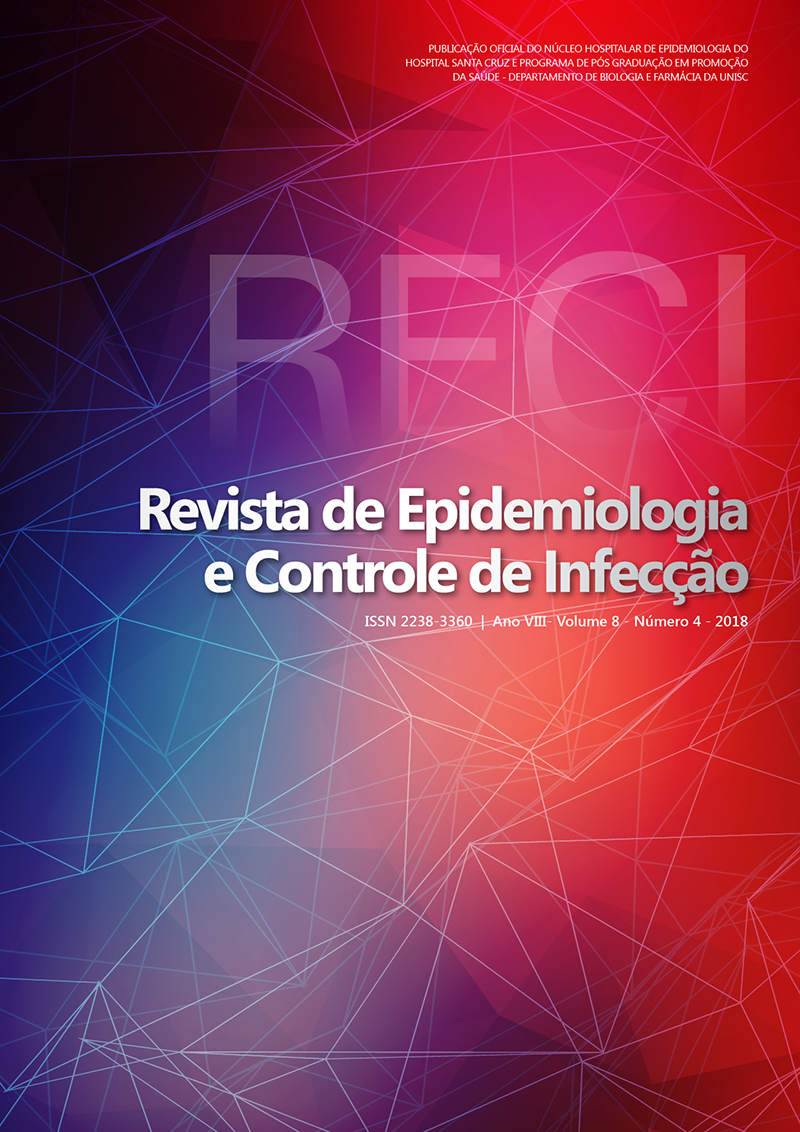Vacinal situation knowledge and Hepatitis B improvement profile of hospital assistance workers
DOI:
https://doi.org/10.17058/reci.v8i4.11493Abstract
Background and Objectives: Hepatitis B is an universally prevalent viral infection, it is considered the most important infectious occupational disease. Immunity obtained through vaccination is an effective preventive strategy, however, about 10% of vaccinees do not achieve protective antibody titers, requiring serological test to confirm immunity. The objective of this study was to investigate the knowledge of the nursing staff about the vaccination situation and immunoprotein profile to hepatites B.Methods: It is an epidemiological, analytical, conducted with 70 workers of a public hospital of regional reference in the State of Paraíba. After consent, they were submitted to the 2 interview, blood collection and serological tests for the detection of HBsAg and anti-HBs markers, in duplicate, by Electrochemiluminescence. The data collected were processed using the SPSS version 22.0 and analyzed using escriptive statistics. Results: Most participants were women (85.7%), with a mean age of 33.4 years and a high school degree (75.7%). About vaccination status, 65.7% reported having complete scheme and 73.9% had blood test with 18.2% of non-seroconversion of them. Regarding the test for immunological status verification, 25.7% reported not knowing the existence of a specific test for such detection. There was a significant association between professional category and knowledge about Anti-HBs. Conclusion: There was a high percentage of non-seroconversion among nursing workers, which, concomitant with the lack of knowledge about their immunological status, made them vulnerable to the disease.Downloads
Downloads
Published
How to Cite
Issue
Section
License
The author must state that the paper is original (has not been published previously), not infringing any copyright or other ownership right involving third parties. Once the paper is submitted, the Journal reserves the right to make normative changes, such as spelling and grammar, in order to maintain the language standard, but respecting the author’s style. The published papers become ownership of RECI, considering that all the opinions expressed by the authors are their responsibility. Because we are an open access journal, we allow free use of articles in educational and scientific applications provided the source is cited under the Creative Commons CC-BY license.


